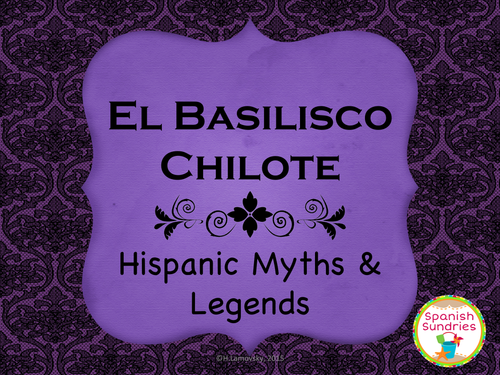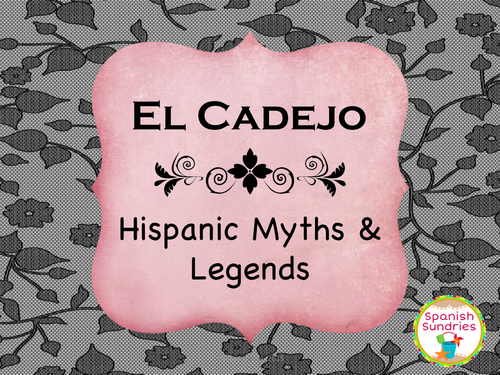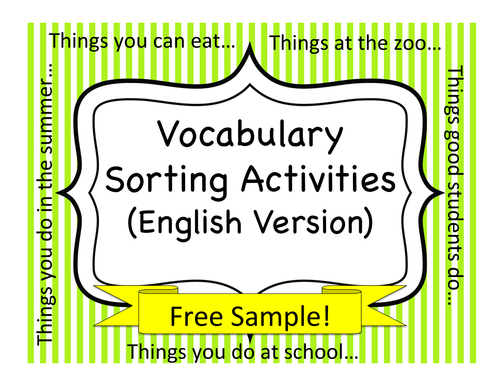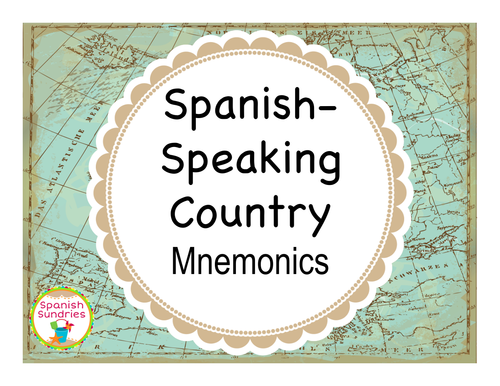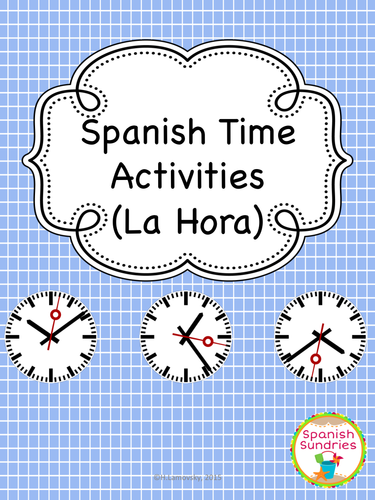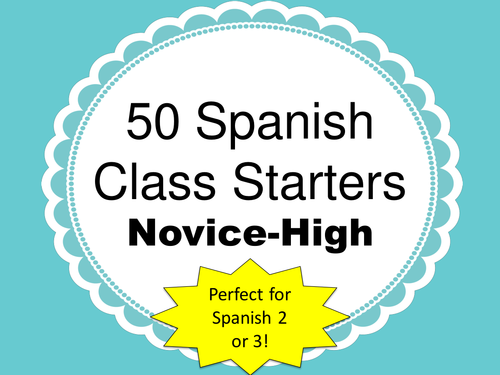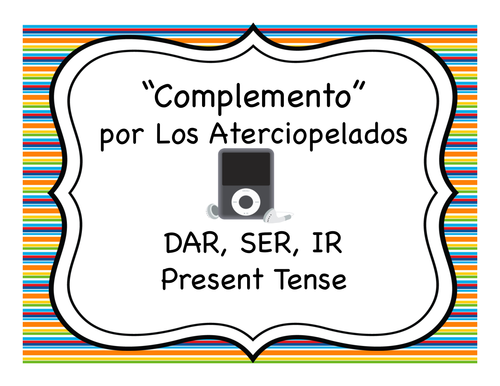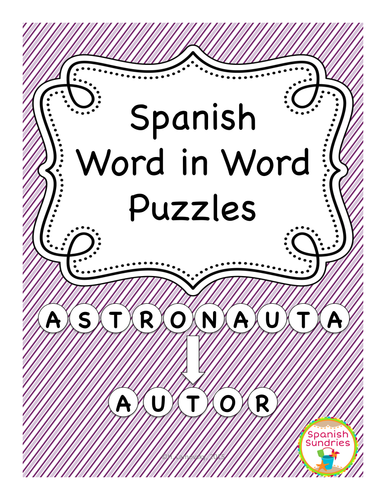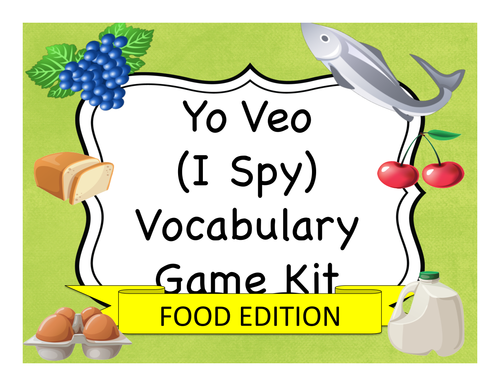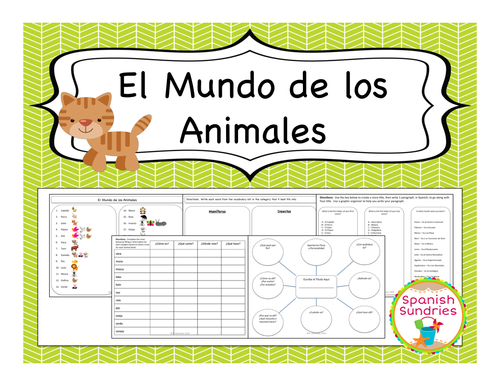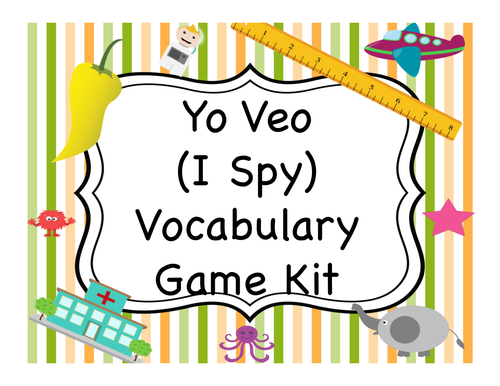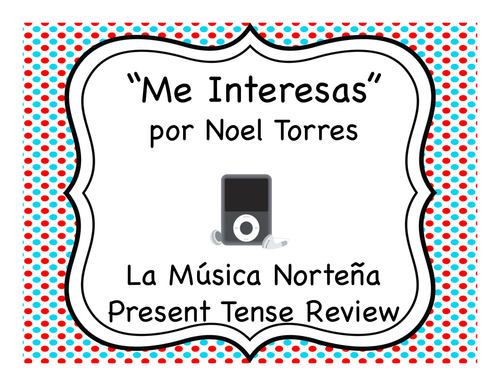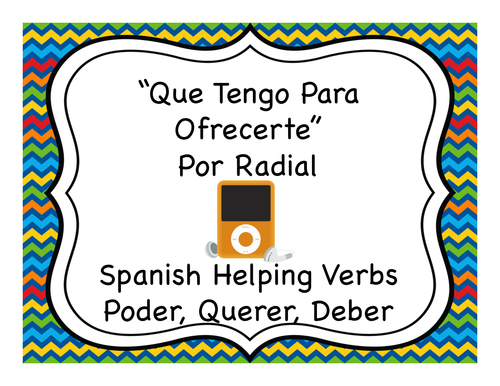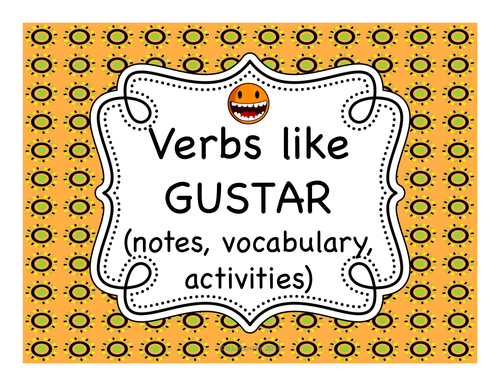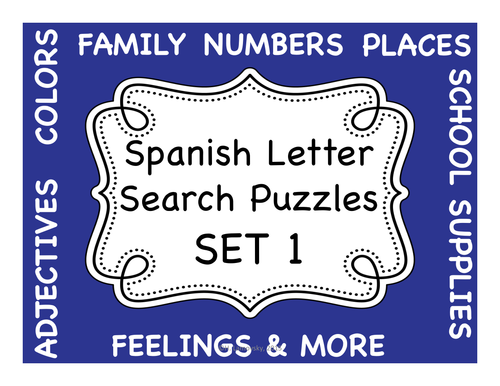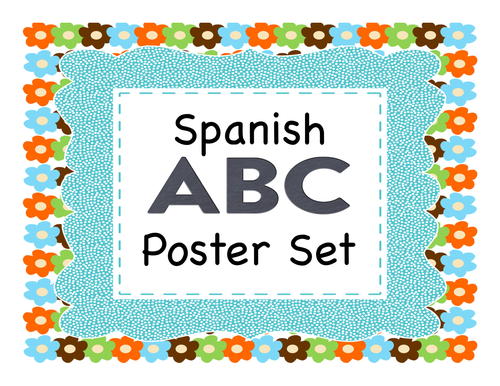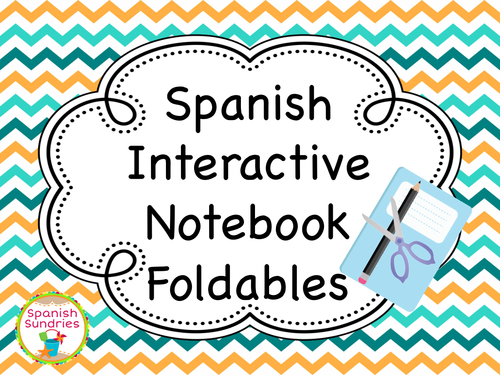
320Uploads
91k+Views
4k+Downloads
Languages

Hispanic Myths & Legends: El Basilisco Chilote
This lesson introduces beginning language learners to the legend of El Basilisco Chilote (Chile) in a way that promotes using legends to learn about culture in a deep and meaningful way.
This lesson asks students to consider some complex ideas and make connections between the products, practices, and beliefs of Hispanics around the world. These activities promote higher-level thinking that would be beyond the grasp of most students in the target language, so the lessons are done in English to make sure they are attainable.
These lessons make perfect sub plans as they require no prep and little to no Spanish language production.
Students begin by reading the legend of El Basilisco Chilote and illustrating the legend to demonstrate comprehension and understanding.
Students are then introduced to the concept of "folk illnesses" which, like the legend, blame illness on supernatural forces and treat them in unconventional ways. Students will learn about 3 common "folk illnesses" and be asked to consider some of the less conventional treatments or myths surrounding sickness in their own culture.
In the following activity, students are asked to propose a more "scientific" explanation for the folk illnesses mentioned in the legend and in the second activity. They are also asked to consider reasons why indigenous cultures may resist the treatments and explanations of modern medicine.
Finally, students will be introduced to the Mercado de Brujas in La Paz (Bolivia) and the many items it sells to aid in rituals and folk medicine. Students will translate a list of 10 Spanish items to English based on their prior knowledge of vocabulary and use of a dictionary.
This Product Includes:
-El Basilisco Chilote Legend
-Illustration Activity
-Folk Illness Activity
-Higher Order Thinking Activity
-Mercado de Brujas Activity

Hispanic Myths & Legends: El Silbón
This lesson introduces beginning language learners to the legend of El Silbón (Colombia, Venezuela) in a way that promotes using legends to learn about culture in a deep and meaningful way.
This lesson asks students to consider some complex ideas and make connections between the products, practices, and beliefs of Hispanics around the world. These activities promote higher-level thinking that would be beyond the grasp of most students in the target language, so the lessons are done in English to make sure they are attainable.
These lessons make perfect sub plans as they require no prep and little to no Spanish language production.
Students begin by reading the legend of El Silbón and illustrating the legend to demonstrate comprehension and understanding.
Students are then debriefed on the concept of "Familismo" in Hispanic culture and are asked to reflect on how the characters in the legend display or do not display the traits of "Familismo".
Students are then shown two posters for an event that takes place yearly in Venezuela and references the character "El Silbón". They are asked to assess the posters to draw conclusions about the event and then use that to create an additional poster of their own creation.
Finally, students will read a second and slightly different version of the legend. They will be asked to reflect of how both versions of the story demonstrate the desirable and undesirable behaviors of children in Hispanic culture.
This Product Includes:
-El Silbón Legend (version 1)
-Illustration Activity
-Familismo Activity
-Poster Activity
-El Silbón Legend (version 2)
-Cultural Reflection Activity

Hispanic Myths & Legends: La Llorona
This lesson introduces beginning language learners to the legend of La Llorona in a way that promotes using legends to learn about culture in a deep and meaningful way.
This lesson asks students to consider some complex ideas and make connections between the products, practices, and beliefs of Hispanics around the world. These activities promote higher-level thinking that would be beyond the grasp of most students in the target language, so the lessons are done in English to make sure they are attainable.
These lessons make perfect sub plans as they require no prep and little to no Spanish language production.
Students begin by reading the legend of La Llorona and illustrating the legend to demonstrate comprehension and understanding.
Students are then debriefed on the class system that existed in colonial Mexico and serves as a tie in to the legend itself. Students are then asked to reflect on the social hierarchy within their school building to gain a greater understanding of the feelings and motivations of the lover of La Llorona in the legend.
Finally, students will read a second and slightly different version of the legend from Texas. They will be asked to compare and contrast the two versions and reflect on the cultural differences between the two groups.
This Product Includes:
-La Llorona Legend (version 1)
-Illustration Activity
-Social Class in Colonial Mexico Activity
-Social Hierarchy in Schools Activity
-La Llorona Legend (version 2)
-Venn Diagram Activity

Hispanic Myths & Legends: El Cadejo
This lesson introduces beginning language learners to the legend of El Cadejo (Central America) in a way that promotes using legends to learn about culture in a deep and meaningful way.
This lesson asks students to consider some complex ideas and make connections between the products, practices, and beliefs of Hispanics around the world. These activities promote higher-level thinking that would be beyond the grasp of most students in the target language, so the lessons are done in English to make sure they are attainable.
These lessons make perfect sub plans as they require no prep and little to no Spanish language production.
Students begin by reading the legend of El Cadejo and illustrating the legend to demonstrate comprehension and understanding.
Students are then asked to analyze several paintings created by a Guatemalan using the El Cadejo motif and explain the elements that are common to the paintings and the story.
Students are then introduced to the Mayan belief of spirit animals. They are given some examples of nahuales (spirit animals) and asked to choose an appropriate animal based on their characteristics.
Finally, students will read the lyrics to a song called "El Cadejo" and list words from the song that relate to the legend and support their conclusions with word meanings and rationale.
This Product Includes:
-El Cadejo Legend (version 1)
-Illustration Activity
-Art Activity
-Mayan Nahual Spirit Animal Activity
-Music Lyric Activity

Vocabulary Sorting Activities - Free Sample
This is a free sample containing 2 vocabulary sorting activities. Sorting activities help Foreign Language, Elementary and ESL/ELL students make connections between words, brainstorm for writing, or practice new vocabulary. Their versatility, ease of use, and the fact that they differentiate themselves make them one of my favorite things to use in my own classroom!
Each activity contains 4 different categories which students must complete with words that they know and fit each category. These are a quick, easy way for students to recycle vocabulary that they have previously learned or integrate vocabulary they are currently studying.
They can also be used to gauge a student's progress in acquiring language when compared over the school year and they differentiate themselves!
These work well as a class starter or closing activity. Once students have completed an activity, it is easy to use their work as a jumping off point for writing tasks or inspiration for oral drill and conversation.
Use them when you need a sub plan and ask students to write a paragraph or sentences as a follow up activity! These are low prep and ready to print and go! You can even skip the print step and just display them for students!
The full length product includes 30 activities and is available in both Spanish and English.

Spanish-Speaking Country Mnemonic
A pair of sayings (mnemonics) to assist students in learning the Spanish-speaking countries of North America, Central America, the Caribbean, and South America as well as labeling them on a map.

Spanish Time (La Hora) Activities
Are you looking for ways to have your students practice telling at what time things are scheduled in real life situations? This group of activities focuses on just that with the use of authentic materials and real world situations.
The power point notes explain the process of telling time in Spanish and allow students scaffolded, guided practice as they learn.
In the first activity, students will read sentences that describe at what time a students has each class and label that student's schedule accordingly.
In the second activity, students will send written "text messages" to a friend discussing their class times.
In the third activity, students will use real movie listings to decide and explain when the next showing that they can attend will be.
In the fourth activity, students take on the role of an employee at a bus station in Mexico. They must inform customers of the next bus departure for various cities using a real bus schedule.
There are also two sets of clock fold-it clocks (digital and analog) for you to use in practice activities in your own classroom or as part of an interactive notebook.
This product includes:
-Complete notes on telling time with guided practice (power point)
-School schedule time reading activity
-Class time texting activity
-Movie times activity
-Bus schedule activity
-Answer keys for all activities
-Clock fold its

50 Spanish Bell Ringers - Novice High
50 Activities to get your Novice-High student ready to work as soon as the bell rings! These are good for Spanish 2 or 3 (US) or Spanish A2/B1 (UK). Created in Power Point for display or easy printing. Teacher Index of all activities included.
These are great for daily review or for end of the semester/year review!

"Complemento" & The Present Tense of Dar, Ser, and Ir
Present Tense Irregular verbs like Dar, Ser, and Ir can be hard for students to master, but with these song activities, your students will learn them in a context that will help them remember them for a long time.
These activities go along with the song "Complemento" by Los Aterciopelados, a Grammy nominated Colombian alternative rock group. This song is readily available on YouTube and iTunes and a link to the song is referenced.
Students are asked to listen to the song several times and fill in the lyrics that have been removed. Then, students are given an overview of the verbs dar, ir, and ser, including their meanings and present tense conjugation. Students then are asked to find and copy certain verses of the song. Students then use their new understanding of these three verbs to manipulate the meanings of those verses. Finally, students are asked to complete a writing activity that deals with the theme of their "complemento" and what that person is like (ser), where they go (ir), and what they give (dar).
Included in this download:
-Aterciopelados Artist Bio
-Clozeline Activity
-Dar, Ir, Ser Present Tense Tutorial
-Lyric Identification Activity
-Lyric Manipulation Activity
-Writing Activity (¿Qué haces para las personas que les amas?)
-Answer Keys for all objective activities

Spanish Word in Word Puzzles
How many words can your students make with the letters of the word "astronauta"?
These Spanish word in word puzzles allows students to explore vocabulary in a new and fun way. Each puzzle comes in two versions; a free form response version for upper level students and native speakers, and a version with hints for beginning and intermediate students.
These puzzles are great for after a quiz, on days when you are absent, days when you don't have your whole class, or anytime you need an extra activity.
This Product Includes:
-5 Spanish Word in Word puzzles (free response version)
-5 Spanish Word in Word puzzles (hint version)
-Answer Keys for each puzzle

Yo Veo (I Spy) Spanish Vocabulary Game Kit: Food Edition
5 fun vocabulary games for your students to review vocabulary related to food! This is a flexible game that can be played individually, in small groups, teams, or as a whole class. It is also great for any level or any age group! Easily adapted for French, German, or ESL/ELL as well!
This kit includes:
-Instructions for 2 different vocabulary games
-2 Scoring Sheets (1 per game)
-5 Different Game Boards!

Spanish Animal Mini-Unit
These lessons were designed to teach students the 26 most frequently used (according to the Frequency Dictionary of Spanish by Mark Davies) animal-related words in Spanish.
This Product Includes:
-Vocabulary list with 26 animal-related words and pictorial definitions
-3 Vocabulary Sorting Activities
-1 Animal Fact Chart Activity
-1 Story Title Generator Activity
-1 Graphic Organizer
Ready to Print, Copy & Go! Great for last minute Sub plan!

Yo Veo (I Spy) Spanish Vocabulary Game Kit
5 fun vocabulary games for your students to review vocabulary related to school, colors, professions, animals, food, and much more! This is a flexible game that can be played individually, in small groups, teams, or as a whole class. It is also great for any level or any age group! Easily adapted for French, German, or ESL/ELL as well!
This kit includes:
-Instructions for 2 different vocabulary games
-2 Scoring Sheets (1 per game)
-5 Different Game Boards!

"Me Interesas" & Present Tense Review
These activities go along with the song "Me Interesas" by Noel Torres which is readily available on YouTube and iTunes.
In this lesson, students are introduced to Noel Torres, a rising star in the world of Mexican norteño music. They will learn some basic characteristics of that style of music as they discuss the impact that where you live has on the type of music that you listen to.
Students will then listen to the song "Me Interesas" and fill in blanks to complete the missing lyrics. Afterwards, students will find lines of the song and match them with their English equivalents. Finally, students will use their knowledge of the present tense and common vocabulary to manipulate the lines of the song to mean something slightly different.
These activities merge culture, grammar, and vocabulary concepts and are most suitable for second semester Spanish 1 or Spanish 2 students. These activities would also work for a quick review of the present tense beyond this level.
Included in this download:
-Discussion Questions
-Noel Torres Biography / Characteristics of Norteña Music
-Clozeline Activity
-Lyric Identification Activity
-Lyric Manipulation Activity
-Answer Keys

"Qué Tengo Para Ofrecerte" & Spanish Helping Verbs
These activities are meant to help students learn and practice Spanish sentences that have double verbs. They will observe the grammatical rules and structure that apply to such sentences and learn some verbs that commonly serve as helping verbs (also called auxiliary or modal verbs) in Spanish.
These activities go along with the song "Que Tengo Para Ofrecerte" by Radial, a Puerto Rican indie rock group that has recently migrated to Los Angeles. This song is readily available on YouTube and iTunes and a link to the song is referenced. Also referenced is the bands official website for students who would like to learn more.
Students are asked to listen to the song several times and fill in the lyrics that have been removed. Then, students are given an overview of the concept of double verb sentences and helping verbs. Students then are asked to find and copy certain verses of the song. Students then use their new understanding of this grammatical structure to manipulate the meanings of those verses.
Included in this download:
-Radial Artist Bio and link to their official website
-Clozeline Activity
-Helping Verb/Double Verb Tutorial
-Helping Verb Identification Activity
-Lyric Identification Activity
-Lyric Manipulation Activity
-Answer Keys for all objective activities

Gustar Like/Dislike Unit
This product includes many resources for you to use to help your students improve their interpretive listening, reading, interpersonal speaking, presentational writing, and grammar knowledge of verbs like gustar and likes/dislikes.
This product includes:
1. Vocabulary list (no definitions) with 30 activity phrases common to teens
2. Vocabulary list (with definitions)
3. Four Bell-Ringer or Exit Ticket activities
4. Note handout covering the grammatical structure of sentences with verbs like gustar
5. Grammar Practice Activities
6. Vocabulary Reinforcement Activity
7. Assessment for reading, listening, and vocabulary recognition
8. Scavenger Hunt style speaking activity
9. SpongeBob Squarepants Themed Writing Activity
10. Assessment for grammar application/writing and vocabulary production
11. Answer keys for assessments

Spanish Letter Search Puzzles - Set 1
This set of 10 puzzles will help your students practice the spelling of color, number, family, feeling, sports, places, school supply, months, season, and adjective vocabulary in Spanish.
While typical word search puzzles only target vocabulary recognition, your students will practice actually producing Spanish words as they play against a partner or group to earn the most points by correctly spelling Spanish words.
Each puzzle targets the most frequently used words from a variety of vocabulary themes (see detailed list below). This game is self-differentiating, so even if your students haven't learned every word, they will still be able to play and pick up a couple new words along the way!
Click on "PREVIEW" to see an example of how the game is played!
Included in This Product:
-Guide for Educators
-Student Example
-Master Vocabulary List
-10 Puzzles
Vocabulary Themes Targeted by Puzzle:
-Numbers 0-10
-Numbers 10-100
-Colors
-Family
-Places Around Town
-School Supplies
-Months & Seasons
-Adjectives to Describe People
-Sports & Recreation
-Feelings & Emotions

Spanish Alphabet Poster Set
Thirty 8 1/2 x 11 posters, each one featuring a letter of the Spanish alphabet and a corresponding word. These would make a great classroom border, word wall, or "I have, who has" game cards.

Spanish Interactive Notebook Fold-Its (Beginning Set)
This set of 10 foldables is a great way to get your students interacting with vocabulary and grammar concepts in new ways. While great as a stand alone teaching tool, foldables are also perfect for interactive notebooks. These foldables have endless uses and can be customized to fit your needs in a variety of ways.
This product includes:
1. Instructions on how to assemble foldables
2. Teaching Ideas for each foldable
3. Verb Chart Foldable (Front & Back)
4. House Foldable (Front & Back)
5. Dressing Room / Clothing Foldable (Front & Back)
6. Four Seasons Weather or Clothing Foldable (Front & Back)
7. Food / Menu Foldable (Front & Back, 2 Variations)
8. Emotions Foldable (Front & Back, 3 Variations)
9. Telling Time Foldable (Front & Back, 2 Variations)
10. Places Around Town Pop-Up Foldable
11. Family Tree Pop-Up Foldable (2 Variations)
12. Vocabulary Sorting Foldable (Front & Back, 2 Variations)

Spanish Thanksgiving Activities
Although Thanksgiving is not a holiday celebrated in most of the Spanish-speaking world, there are many Hispanic-Americans who have begun to adopt this tradition.
These activities are based on a short Spanish language video (link provided) that explains the story behind Thanksgiving. While watching the video, students will complete the video script by listening and including missing words. They will then label several drawings with newly acquired Spanish words from the video. They will also predict the meanings of other words used in the video based on context. Finally, students will respond to a variety of comprehension questions using their newly acquired vocabulary and the text for support.
Included in this Product:
1. Video Link
2. Fill-in-the-Blank Video Script
3. Labeling Activity
4. Predicting Meaning Activity
5. Comprehension Activity

